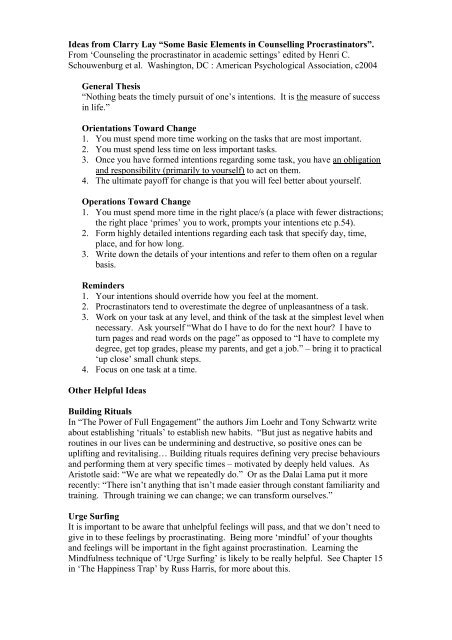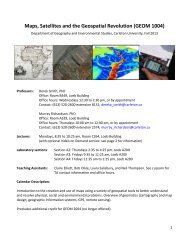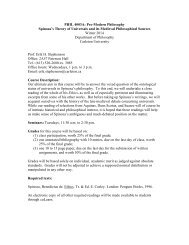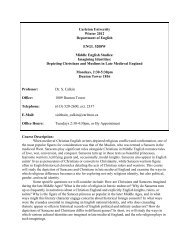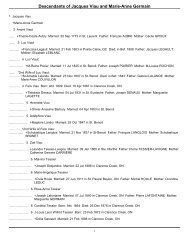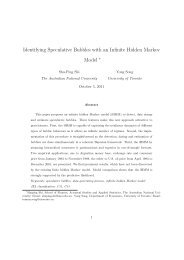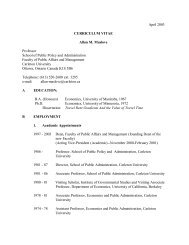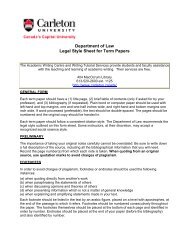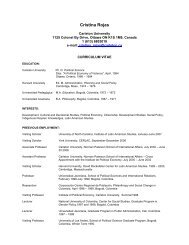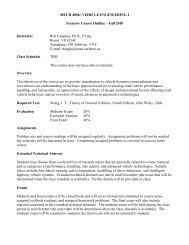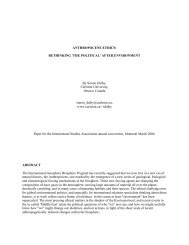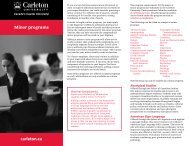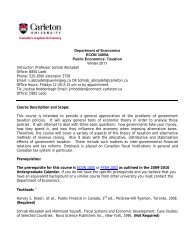20 Tips to Reduce Academic Procrastination
20 Tips to Reduce Academic Procrastination
20 Tips to Reduce Academic Procrastination
You also want an ePaper? Increase the reach of your titles
YUMPU automatically turns print PDFs into web optimized ePapers that Google loves.
Ideas from Clarry Lay “Some Basic Elements in Counselling Procrastina<strong>to</strong>rs”.From ‘Counseling the procrastina<strong>to</strong>r in academic settings’ edited by Henri C.Schouwenburg et al. Washing<strong>to</strong>n, DC : American Psychological Association, c<strong>20</strong>04General Thesis“Nothing beats the timely pursuit of one’s intentions. It is the measure of successin life.”Orientations Toward Change1. You must spend more time working on the tasks that are most important.2. You must spend less time on less important tasks.3. Once you have formed intentions regarding some task, you have an obligationand responsibility (primarily <strong>to</strong> yourself) <strong>to</strong> act on them.4. The ultimate payoff for change is that you will feel better about yourself.Operations Toward Change1. You must spend more time in the right place/s (a place with fewer distractions;the right place ‘primes’ you <strong>to</strong> work, prompts your intentions etc p.54).2. Form highly detailed intentions regarding each task that specify day, time,place, and for how long.3. Write down the details of your intentions and refer <strong>to</strong> them often on a regularbasis.Reminders1. Your intentions should override how you feel at the moment.2. Procrastina<strong>to</strong>rs tend <strong>to</strong> overestimate the degree of unpleasantness of a task.3. Work on your task at any level, and think of the task at the simplest level whennecessary. Ask yourself “What do I have <strong>to</strong> do for the next hour? I have <strong>to</strong>turn pages and read words on the page” as opposed <strong>to</strong> “I have <strong>to</strong> complete mydegree, get <strong>to</strong>p grades, please my parents, and get a job.” – bring it <strong>to</strong> practical‘up close’ small chunk steps.4. Focus on one task at a time.Other Helpful IdeasBuilding RitualsIn “The Power of Full Engagement” the authors Jim Loehr and Tony Schwartz writeabout establishing ‘rituals’ <strong>to</strong> establish new habits. “But just as negative habits androutines in our lives can be undermining and destructive, so positive ones can beuplifting and revitalising… Building rituals requires defining very precise behavioursand performing them at very specific times – motivated by deeply held values. AsAris<strong>to</strong>tle said: “We are what we repeatedly do.” Or as the Dalai Lama put it morerecently: “There isn’t anything that isn’t made easier through constant familiarity andtraining. Through training we can change; we can transform ourselves.”Urge SurfingIt is important <strong>to</strong> be aware that unhelpful feelings will pass, and that we don’t need <strong>to</strong>give in <strong>to</strong> these feelings by procrastinating. Being more ‘mindful’ of your thoughtsand feelings will be important in the fight against procrastination. Learning theMindfulness technique of ‘Urge Surfing’ is likely <strong>to</strong> be really helpful. See Chapter 15in ‘The Happiness Trap’ by Russ Harris, for more about this.


